Whether you’re up for an intense workout routine or needing a prolonged concentration for work or study, energy drinks are great pick-me-ups.
They have been the lifeline of anyone who’s needing a boost to put their game on the next level.
Energy drinks may have been around for decades and have become popular among athletes, workers, and even students, but ever wonder how quick they work?
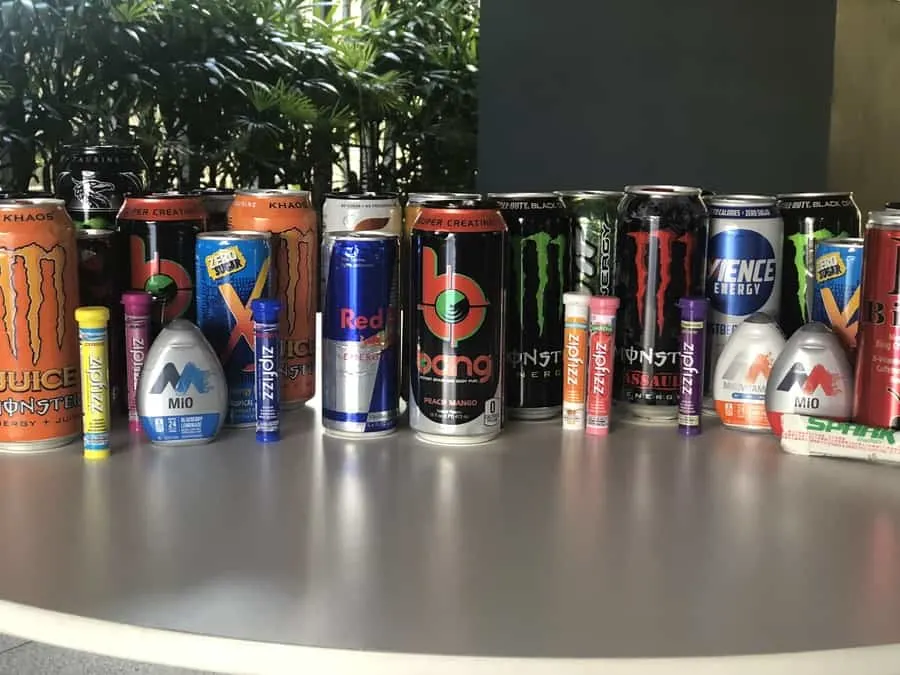
To keep it short, energy drinks kick in 10 minutes after consumption. The caffeine in them starts to stimulate your nervous system by that time and gives you a boosted feeling.
If you want a more detailed discussion about how energy drinks work and when do they kick in, continue reading.
Contents
Why Do People Drink Energy Drinks?
People drink energy drinks because of the popular claim that they can boost energy, aid in weight loss, increase endurance, and improve brain function.
Energy drinks are often advertised as items that can boost energy while also improving mental and physical performance. Energy drinks are the most often taken dietary supplement among American teenagers and young adults, second only to multivitamins. These drinks are most often consumed by men between the ages of 18 and 34, and over a third of youngsters aged 12 to 17 frequently take them.
To have a better understanding of energy drinks, let’s get into their history:
History of Energy Drinks
Energy drinks are the beverage industry’s fastest-growing segment. The era of energy drinks began in 1962 when a Japanese company named Taisho released Lipovitan D.
Lipovitan D was marketed as a medical tonic with added caffeine and vitamins.
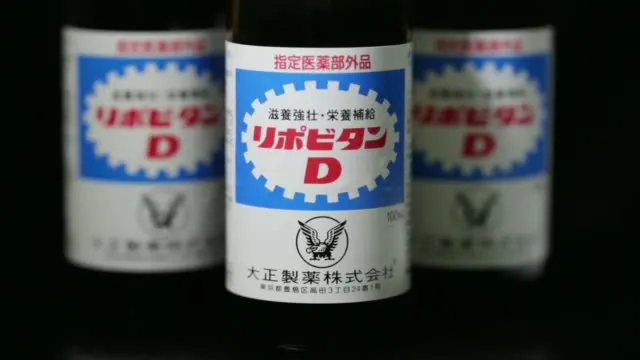
When Austrian businessman Dietrich Mateschiz visited Bangkok and ‘discovered’ these energetic tonics, they had a tremendous international break. He was so taken aback by the tonics’ results that he joined with Krating Daeng‘s makers in 1984 to bring the brand to a wider audience.
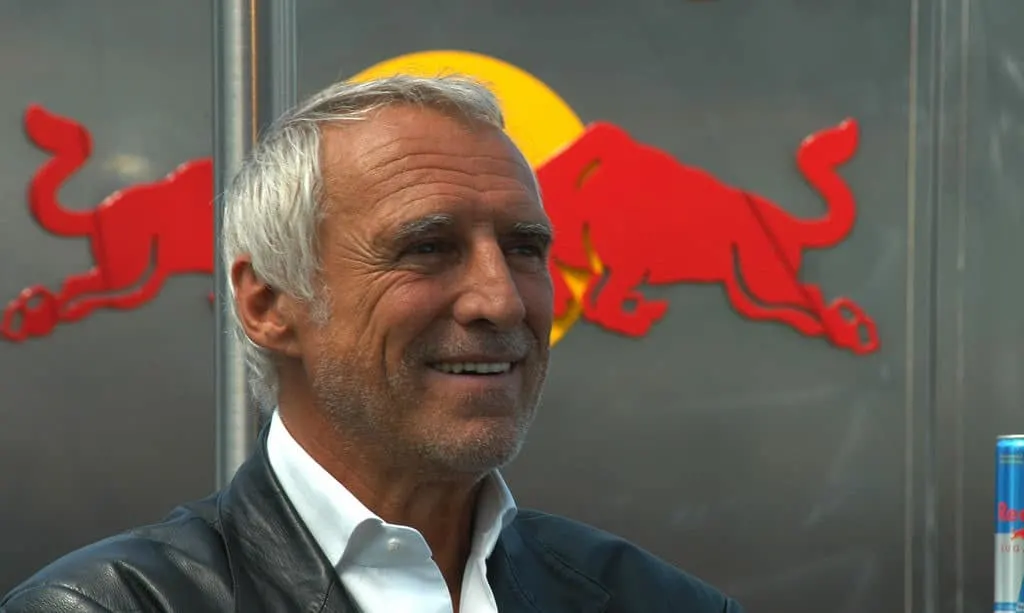
Krating Daeng renamed itself Red Bull and swept through Europe. Red Bull became an overnight sensation thanks to the mixture of caffeine, taurine, and carbonation. Mateschiz launched his discovery in the United States in 1997, and the energy drink industry as we know it today was created.
What gives energy drinks their kick?
Energy drinks get their kick from caffeine, a natural stimulant found in coffee, tea, and other sources. Most energy drinks contain high levels of caffeine, often much more than a typical cup of coffee.
Other ingredients found in energy drinks, such as taurine, guarana, and B vitamins, are also thought to contribute to the energy-boosting effects. Taurine is an amino acid that is naturally found in the body, while guarana is a plant extract that contains caffeine.
Some energy drinks also contain sugar or artificial sweeteners, which can provide a quick source of energy, but can also contribute to negative health effects if consumed in excess. It is important to consume energy drinks in moderation and to be mindful of their potential health effects.
How long does energy drink take effect?
The effects of energy drinks can vary depending on the individual and the specific product consumed. However, in general, the effects of energy drinks can be felt within 15-45 minutes after consumption and may last for several hours.
The caffeine and other stimulants found in energy drinks can increase alertness, improve focus, and provide a burst of energy. However, it is important to note that the effects of energy drinks can also vary depending on factors such as the individual’s tolerance to caffeine, the amount and type of caffeine in the energy drink, and whether the individual has consumed food or water before or after consuming the energy drink.
When should you drink an energy drink?
The timing of when to consume an energy drink can depend on a few factors, such as the individual’s energy needs, the purpose of consuming the energy drink, and the specific product being consumed. Here are some general guidelines:
- Before a workout: Some people consume energy drinks before a workout or athletic event to help improve performance and increase endurance. If using an energy drink for this purpose, it is generally recommended to consume it 30-60 minutes before the workout or event to allow time for the effects to kick in.
- During a long activity: If engaging in a long activity, such as a hike or a long day at work, some people may choose to consume an energy drink during the activity to help maintain energy levels. However, it is important to be mindful of the amount of caffeine and other stimulants being consumed, as well as the potential for dehydration.
- When feeling tired or sluggish: If feeling tired or sluggish during the day, some people may choose to consume an energy drink as a quick pick-me-up. However, it is important to be mindful of the amount of caffeine being consumed and to avoid consuming energy drinks late in the day, as this can interfere with sleep.
Uses of Energy Drinks
Sports
Energy drinks can improve mental focus, alertness, anaerobic performance, and/or endurance performance if consumed 10-60 minutes before exercise.
That’s why they’re popular among athletes and sportspeople, so much so that energy brands even sponsor or host some sports events.
Studying
Energy drink consumption has risen among students, specifically college students. What with the drink’s ability to keep one awake and apparently sharpen brain function, it’s no wonder these drinks are popping off with the kids.
It’s vital for a student to be awake and functioning during late-night studies, so an energy drink can sometimes come in handy for them. If you’d like to know what energy drinks are best for studying, you can check out this article I wrote.
Work
People who work in high-stress environments which require a lot of attention and energy can benefit from these drinks. Especially if those people work night-shift.
Most of us will undoubtedly rely on coffee. However, an increasing number of individuals opt for one of the energy drinks if they are unsatisfied with coffee.
Caffeine In Energy Drinks
Caffeine is the primary ingredient of most energy drinks. This is because caffeine has some molecules that bind the adenosine receptors.
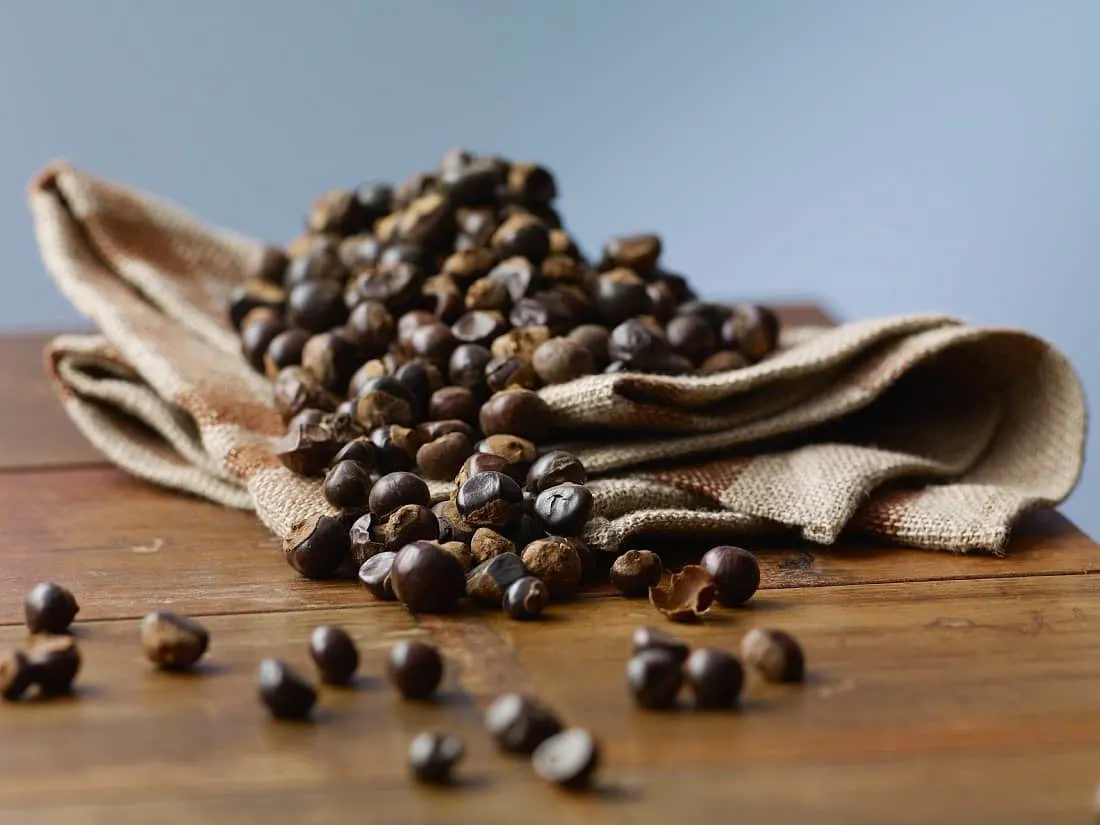
Adenosine is a chemical created by all individuals and serves a variety of activities in the body.
Caffeine is an “antagonist” chemical, meaning that it binds to adenosine receptors on cell surfaces but does not activate them. As a result, the molecule acts as a competitive adenosine inhibitor.
Caffeine’s role as an antagonist chemical implies that the receptor does not accomplish its typical role of generating sleepiness, even though something is attached to the receptors. Caffeine binds to adenosine receptors, which causes nerve cell activity to increase and brain blood vessels to constrict.
Thus, caffeine inhibits the brain from taking the typical stages that cause us to get weary.
It’s important to remember that while caffeine has its benefits, it also has its cons, and too much of it can be dangerous. The FDA has a daily caffeine limit of 400mg and consuming anything over that may be harmful to your body.
Caffeine Pros and Cons
Pros
- Improve alertness
- Rich sources of several antioxidants
- Lowers risk of type 2 diabetes
- Improved memory
- Enhances athletic performance
Cons
- Insomnia
- Anxiety
- Mood swings
- Hallucination
- Palpitations
If you’re worried about the adverse effects caffeine poses, you can always try healthier food choices that can help you in boosting your energy rather than relying on caffeinated beverages:
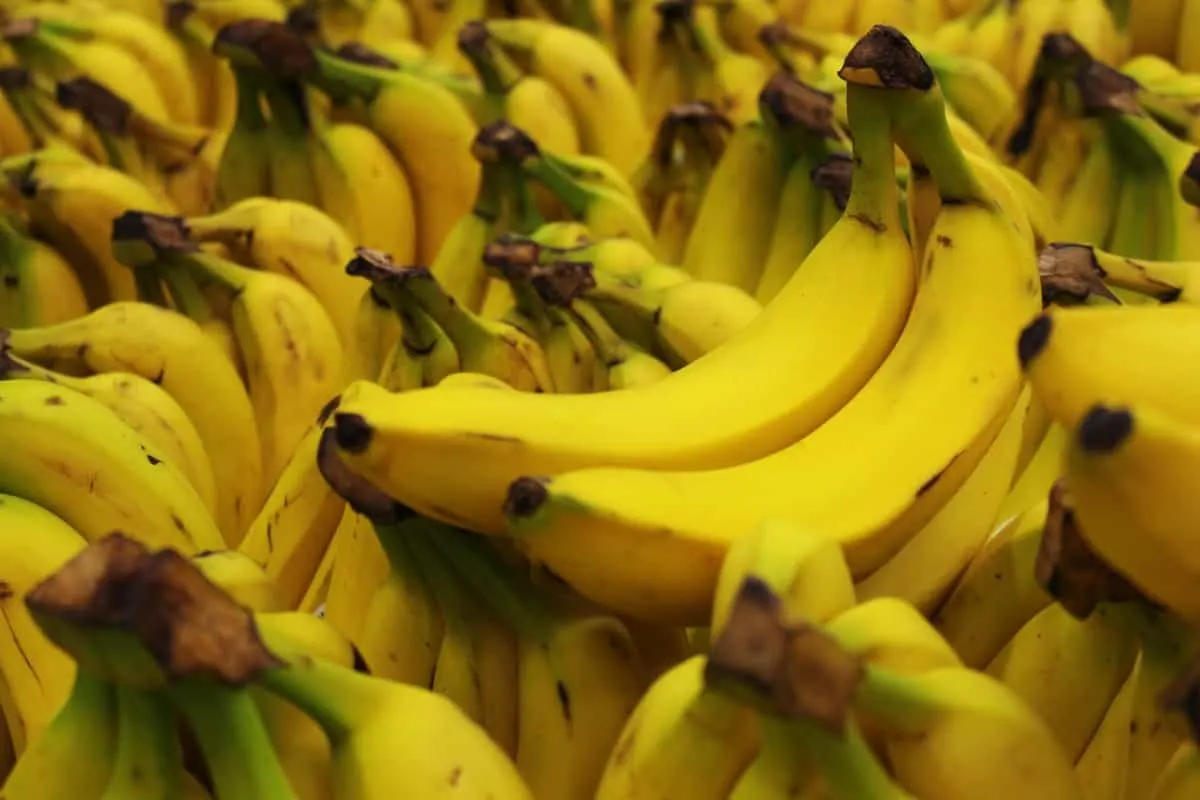
- Bananas
- Fatty Fish
- Brown rice
- Sweet potatoes
- Eggs
- Apples
And lots more on this list.
When Do Energy Drinks Kick-In?
Energy drinks kick in around 10 minutes after consumption, however, it may take up to 30 minutes to see their full benefits. The peak energy boost occurs between 30 and 60 minutes after consuming an energy drink, after which the benefits start to fade.
The caffeine in energy drinks is the key cause for the boost you get after consuming them. Other components, particularly sugar, have a role, but energy drinks wouldn’t be the same without caffeine.
Caffeine absorption normally peaks approximately 45 minutes after consumption. Still, your caffeine metabolism can be affected by various circumstances, so the exact time you experience peak absorption may vary significantly.
After approximately an hour, the benefits of the caffeine begin to fade, and you may feel a sugar crash at the same time. As your energy levels drop, you’ll also feel sluggish and tired.
If you want to know more about how energy drinks work, here’s a video you can watch:
As quickly as energy drinks work, they are also quite quick to wane off…
How Long Do Energy Drinks Last?
Energy drinks can last up to five hours as that is how long it takes for half of the caffeine in your bloodstream to wane off, but it will take around 12 hours for it to completely leave your system.
That’s enough hours to put yourself to your grind, but if you are somehow unsatisfied or left wanting more, always remember that too much consumption will be detrimental to your health.
Pay heed to the caffeine limit (400mg) and the caffeine content of your energy drink. Try to not go over the limit because doing so will cause adverse effects like:
- Restlessness and shakiness
- Insomnia
- Headaches
- Dizziness
- Rapid or abnormal heart rhythm
- Dehydration
- Anxiety
That’s why it is always important to mind your overall caffeine consumption, especially if you have low caffeine tolerance. Otherwise, consume caffeine moderately or only when you need to.
Do Energy Drinks Work?
Energy drinks do definitely work, but only for a period of time.
The caffeine in energy drinks acts as a stimulant that stimulates your neurological system and boosts circulation in your body, such as adrenaline and cortisol levels, which then influence dopamine levels, giving you a boost and more awake energy.
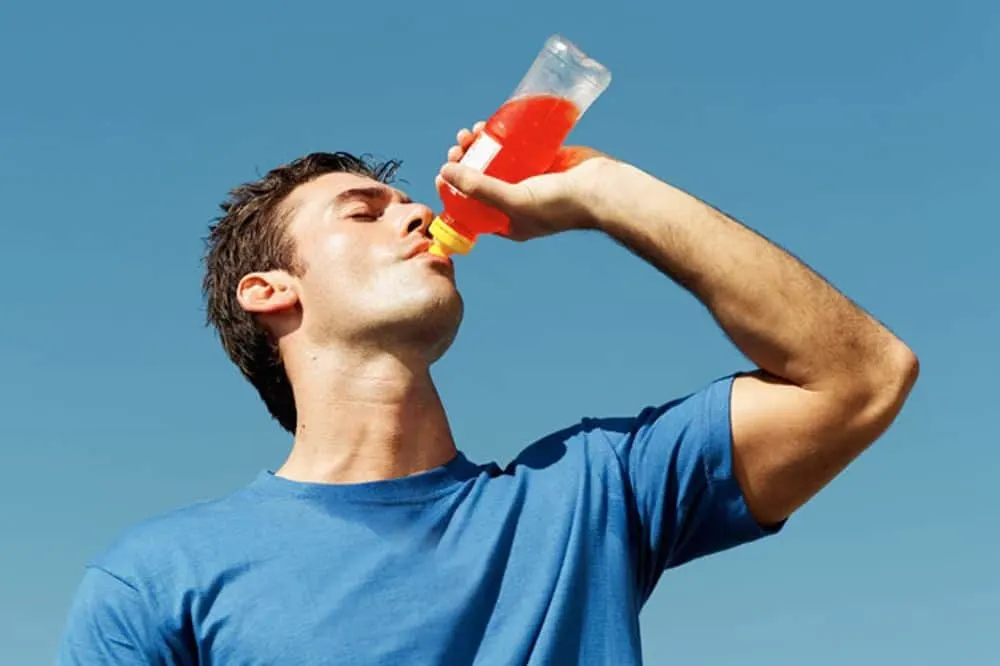
That being said, it is a great beverage to use during an intensely physical performance or during study sessions as it also improves concentration and memory.
However, they only work temporarily, leaving you feeling tired after the caffeine and sugar leave your system.
Side Effects Of Energy Drinks
The majority of the negative effects of energy drinks are caused by the high levels of caffeine and sugar in some types.
For the sake of comparison, the FDA recommends that healthy individuals consume no more than 400mg of caffeine each day. Any more than that, and you risk experiencing negative consequences.
For sugar, the AHA has laid out these guidelines for both men and women:
| Men | 36g/day |
| Women | 25g/day |
Excessive usage of energy drinks over time is also harmful to your health. Drinking too many energy drinks regularly, especially ones with a lot of caffeine and sugar, might cause health problems.
Such problems include:
- Weight gain
- Nervousness
- Shaking
- Restlessness
- Irritability
- Fatigue and sugar crashes
- Vomiting
- Increased heart rate
- Caffeine addiction
- Dehydration and weakness
- Poor dental health
- Respiratory problems
- Caffeine overdose
- Death
So as always, watch your consumption of energy drinks, or any processed foods as these have long-term negative effects.
Ideally, it is still important to maintain and choose a wholesome and healthy diet.
How Often Should You Drink Energy Drinks?
Drinking energy drinks as often as once a day is probably enough. Anything over that might cause you to exceed the advised caffeine limit. But even still, I suggest you should only drink it when necessary.
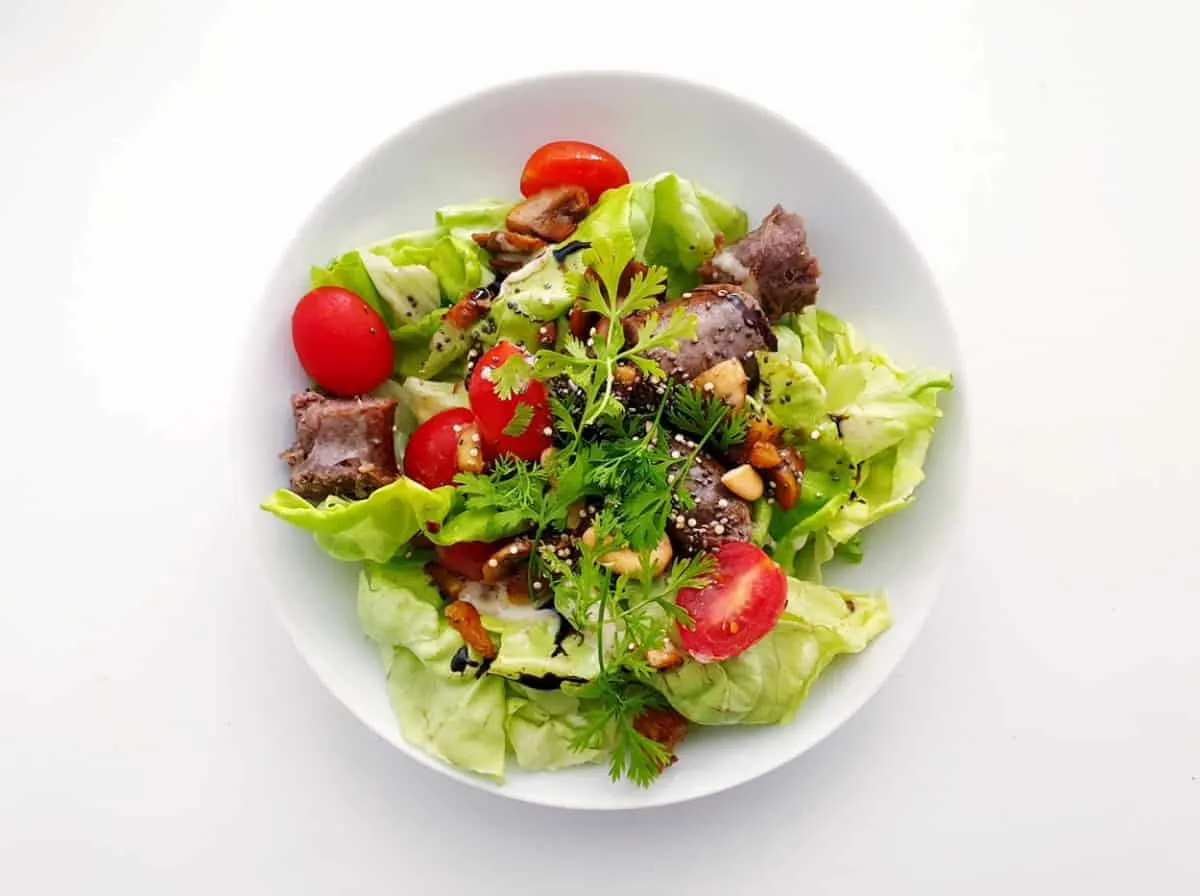
Ideally, you should only take energy drinks occasionally or when you really feel tired or you need much more concentration.
But then again, if you have low caffeine or sugar tolerance, it’s best if you try to avoid or go over healthier diets that boost your energy because caffeine and sugar are some of the hefty ingredients you can find in energy drinks.
Conclusion
Energy drinks work pretty quickly and can provide you a temporary energy fix that lasts long enough for you to power through whatever needs to be done.
However, since they are only there to aid your tiredness temporarily, they might leave you ironically tired after it subsides from your system.
Energy drinks, in general, can be a huge help in any aspect of your daily life such as work, studying, sports, or even working out.
But you might wanna note that a well-balanced and healthy diet will top any energy-boosting drinks. So you should maintain or incorporate a healthy lifestyle if you also want to avoid health risks brought by these artificial energy-boosting drinks.
